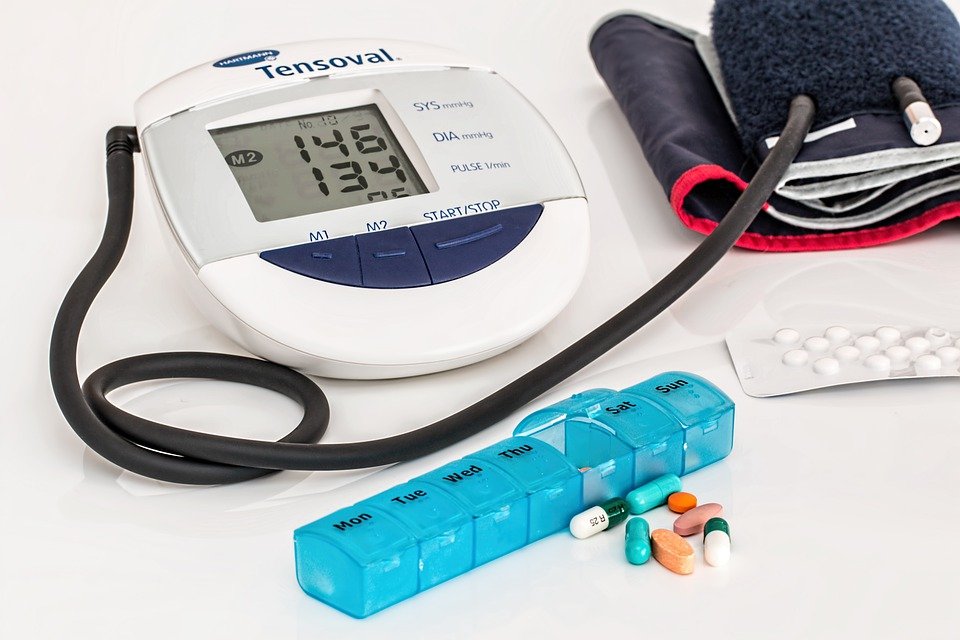
Sleep hygiene is key to shaping your physical health by improving recovery, boosting immunity, and balancing hormones. Creating an ideal sleep environment and a consistent schedule promotes restful sleep. This enhances cellular repair, aids in muscle recovery, and strengthens your immune response against illnesses. Good sleep habits also regulate hormones, helping control weight by balancing hunger and fullness signals. Adequate rest reduces stress and supports cardiovascular health by maintaining healthy cholesterol levels and blood pressure. Embracing these habits can protect against conditions like diabetes and heart disease. There’s much more to explore about how sleep impacts your well-being.
Understanding Sleep Hygiene
Understanding sleep hygiene is key to improving your overall sleep quality. By mastering your sleep environment and establishing a bedtime routine, you claim your nights back and break free from restless slumber. Regular exercise can significantly bolster sleep quality, as physical activity promotes deeper rest and regulates circadian rhythms naturally.
First, focus on optimizing your sleep environment: keep your bedroom quiet, dark, and cool, ideally between 60-67°F. Use heavy curtains or an eye mask to block out any light, and employ earplugs or a white noise machine to cancel out disruptive sounds. A clutter-free space, complemented by a comfortable mattress and pillows, fosters relaxation.
Establishing a bedtime routine is essential. Signal your body it’s time to relax by unwinding with calming activities like reading or listening to soothing music before bed. Avoid stimulating activities in bed, such as watching TV or working, to promote relaxation. Keep stimulating tasks at bay—ditch the screens and the worries.
Adopting a consistent sleep schedule, even on weekends, tunes your body’s internal clock, making falling asleep and waking up as natural as breathing.
Role of Sleep in Recovery
Incorporating quality sleep into your routine is essential for both body and brain rejuvenation, as it drives vital processes like cellular repair and memory consolidation. Sleep supports immune function, with cytokines being produced to help fend off infections. Adequate sleep is crucial not only for recovery but also for muscle healing and hormone regulation, ensuring effective muscle repair post-exercise. The importance of sleep for recovery and overall well-being highlights how adequate sleep significantly strengthens the immune system, reducing susceptibility to infections.
Body and Brain Rejuvenation
When you lay down to rest, your body and brain commence on an important journey of rejuvenation. During this transformative period, your cells engage in crucial activities like cell regeneration and molecular repair, nurturing your physical resilience.
Sleep guarantees that damaged tissues mend, working behind the scenes to restore your body’s natural energy balance. At the heart of these restorative processes lies hormonal fluctuations, fundamental in regulating growth and stabilizing various bodily functions.
Your brain is equally industrious, diving into tasks that secure its own maintenance and enhancement. It systematically engages in cognitive restoration, processing the day’s experiences and committing them to memory consolidation.
Through efficient waste clearance, your brain discards byproducts that could otherwise impede your mental clarity and overall function. The synergistic dance of brain maintenance during sleep is critical for nurturing mental wellbeing.
This rejuvenation isn’t just about physical healing; it’s about freeing your mind, setting you free to experience the world with heightened clarity and reduced stress.
Embrace the power of sleep as it fuels your individual growth and well-being, sculpting a healthier, more vibrant life. Prioritize your rest, and release your potential.
Immune System Support
Harness the power of sleep to bolster your immune system, as sleep dramatically enhances your body’s defense against illness. By prioritizing rest, you ramp up cytokine production, essential proteins that tackle inflammation and infection. These cytokines are key players in your innate and adaptive immunity.
During restful slumber, your body rallies energy towards its first line of defense, fortifying the immune system against invading pathogens and reducing infection severity. On the other hand, skimping on sleep stifles cytokine production, leaving you vulnerable and sapping your natural defenses.
Moreover, revealing the mysteries of vaccine efficacy is deeply entwined with your sleep patterns. Studies reveal that catching enough Z’s before and after vaccination boosts antibody production, a significant factor in vaccine success.
Sleep-deprived individuals often show diminished antibody levels post-vaccination, compromising their body’s response to threats like influenza and hepatitis. Embrace a consistent sleep schedule to maximize your body’s ability to develop these essential defenses.
In the turmoil of illness, great sleep secures deeper stages of NREM sleep, permitting stronger immune responses and faster recovery.
Immune System Boost From Sleep

A good night’s sleep does wonders for your immune system. When you’re well-rested, your body gears up for battle, enhancing T cell activation and cytokine production. These essential players strengthen your immune response, helping to fend off infections. Unfortunately, sleep deprivation ruins this harmony, increasing stress hormones that sabotage T cell function and impair cytokine production. As a result, you’re more susceptible to infections and experience hindered recovery processes, plaguing you with potential health implications. Proper rest also plays a crucial role in maintaining core stability, which contributes to overall physical fitness and injury prevention. Being tired isn’t just exhausting—it makes you vulnerable. Challenges like infection susceptibility and reduced vaccine efficacy creep in, leading you to catch common colds more easily or respond less effectively to vaccinations. Adequate sleep recharges you, boosting antibody production and empowering your body’s natural defenses.
| Sleep Well | Sleep Deprived | Result |
|---|---|---|
| T cell activation | Inhibited T cells | Increased infection risk |
| Balanced cytokine production | Reduced cytokines | Weakened response |
| Robust vaccine efficacy | Lower antibody levels | Compromised immunity |
Liberate yourself from endless fatigue. Embrace restful sleep as a shield, fortifying your immune fortress against illnesses and championing your well-being. Consistent, quality sleep isn’t a luxury—it’s your body’s necessary armor in life’s daily battles.
Hormonal Balance and Sleep
While a strong immune response flourishes with quality sleep, your hormonal balance hinges on it too. Poor sleep can trigger hormonal fluctuations, releasing a cascade of sleep disturbances. Your body’s natural circadian regulation depends on melatonin, often disrupted by inadequate rest, affecting everything from your mood to your metabolic balance.
Stress management falters when cortisol runs rampant due to insufficient sleep, knocking essential hormones like estrogen and progesterone off course. Estrogen, for instance, plays a starring role in how your body handles magnesium—key to achieving the sleep quality you crave.
And while progesterone levels naturally rise during pregnancy, lack of sleep can spike anxiety instead of fostering the desired anxiety reduction. If you’re maneuvering menopause or perimenopause, those notorious hot flashes and mood swings thrive on hormonal imbalances, further disrupting your sleep.
Hormone therapy might offer relief, helping recalibrate estrogen, progesterone, and even testosterone levels. But a holistic approach combining sleep hygiene can prove transformational.
Think dark rooms, a consistent routine, and ditching screens before bed. Prioritizing relaxation can harmonize your hormones with your sleep cycle, paving the way for a liberating transformation in health. Additionally, engaging in mindfulness practices, such as meditation, can bolster hormonal balance by reducing stress and promoting emotional regulation.
Sleep’s Effect on Weight Control

When you don’t get enough quality sleep, your body’s regulation of appetite hormones gets thrown off balance, leading to increased hunger and calorie intake. This lack of sleep can also impair your metabolism, resulting in a higher risk of weight gain and challenges in maintaining a healthy weight. Prioritizing good sleep hygiene will help you keep your hormones and metabolism in check, supporting effective weight control. Additionally, adequate hydration supports overall metabolic health and can be an important factor to consider for weight management efforts.
Hormones and Weight Balance
Sleep deprivation disrupts the balance of appetite-regulating hormones, making weight control more challenging. When you’re not getting enough rest, hormonal dysregulation kicks in, throwing appetite control off balance.
This imbalance means that levels of ghrelin, the hormone that spikes hunger, rise considerably. At the same time, leptin, the hormone that signals fullness, takes a nosedive. You’re left facing a constant hunger that drives cravings for high-calorie, high-sugar foods, which can lead to overeating and weight gain.
Your late nights may encourage more trips to the kitchen, particularly for carb-heavy snacks. On average, losing sleep might prompt consuming an extra 250-400 calories a day, which can quickly add up.
It’s not just about what you’re eating; it’s also that sleep deprivation saps your energy, reducing your motivation to stay active. Daytime fatigue leads to more sedentary behavior, compounding weight issues.
Understand that by improving your sleep hygiene, you’re not just fine-tuning weight control but reclaiming energy and motivation for active living. Breaking free from the cycle of sleep loss and weight gain offers you a path toward healthier life choices, enhancing both your well-being and your sense of freedom.
Metabolism and Sleep Quality
Understanding the link between hormones and weight balance provides a clear picture of how sleep quality further influences weight control through metabolic processes.
When you don’t get enough sleep, your metabolic impact takes a hit, slowing your ability to burn calories. This disruption in calorie regulation throws off your energy balance, making your body hoard calories as fat, leading to unwanted weight gain.
Sleep deprivation wreaks havoc by decreasing your resting metabolic rate and causing insulin sensitivity to plummet—bad news for maintaining a stable weight.
Your insulin sensitivity drops considerably when you’re sleep-deprived, pushing your body to store more fats and sugars as it battles to regulate blood sugar levels. This not only complicates weight management but also increases your risk of type 2 diabetes.
Carving out enough rest becomes essential to curb those notorious food cravings and to sharpen your appetite control. Sleep deprivation can intensify cravings for high-calorie, carb-rich foods, tempting you to indulge in energy-dense options.
Furthermore, adequate sleep enhances your energy levels, fueling your motivation for physical activity and supporting your body’s restorative processes.
Embrace sleep as your ally for liberation from unwanted weight.
Cardiovascular Benefits of Sleep
Though many overlook its significance, getting proper sleep offers substantial cardiovascular benefits. Regulating your sleep patterns is essential as it reduces cardiovascular risk, providing a potentially lifesaving boost to your heart’s health. The American Heart Association recommends sleeping 7-9 hours per night to prevent heart disease.
If sleep falls short, it can lead to increased risk factors like high blood pressure, diabetes, obesity, and inflammation. Consistent sleep duration is vital; irregular sleep schedules can nearly double your risk of heart disease due to disturbed circadian rhythms.
Imagine this:
- Your heart rate slows as you drift into a peaceful sleep, reducing the workload on your cardiovascular system.
- A tranquil mind supports a healthier heart as it regulates cortisol levels, keeping stress and blood pressure at bay.
- With better sleep hygiene, your body naturally maintains healthy cholesterol and blood sugar levels.
- Quality rest empowers you to make heart-healthy choices in the face of everyday challenges.
Committing to healthy sleep patterns can jumpstart a cycle of well-being, leading to better food choices and increased physical activity.
Managing Stress Through Sleep
Your sleep habits greatly impact your ability to manage stress effectively.
By maintaining good sleep hygiene, you can reduce stress hormones and enhance your emotional resilience, making everyday challenges easier to handle.
Consistently practicing these habits not only promotes better sleep but also strengthens your capacity to cope with stress.
Sleep Reduces Stress Hormones
How does sleep play a pivotal role in managing stress? It all comes down to cortisol regulation. Sleep deprivation is a major culprit when it comes to increased cortisol levels. When you’re deprived of quality sleep or follow inconsistent sleep schedules, your body ramps up cortisol production, disrupting your natural circadian rhythm.
This hormonal imbalance doesn’t just keep you awake at night; it keeps you trapped in a cycle of stress.
Imagine freeing yourself with:
- A consistent sleep routine that tells your body it’s time to unwind
- Gentle evening yoga, flowing like a peaceful river, to calm your mind
- Deep breaths, like ocean waves, eroding away stress before bedtime
- A plate full of colorful, cortisol-balancing fruits and veggies
It’s liberating to break free from the chains of excessive cortisol. When cortisol levels spike, thanks to chronic stress or poor sleep hygiene, your health takes a hit.
Problems like weight gain, persistent inflammation, and increased disease risk can follow. Managing stress through mindful sleep practices allows you to reclaim your well-being.
The HPA-axis, your body’s stress regulator, finds balance, letting cortisol levels dip naturally as you drift into restful sleep.
Liberate yourself by prioritizing sleep, and regain control over stress and health.
Sleep Enhances Emotional Resilience
In the midst of bustling life and its relentless demands, sleep profoundly enhances emotional resilience by supporting how your brain processes emotions and social interactions. When you get enough sleep, you harness the ability to maintain emotional balance, keeping irritability and anxiety at bay. Your brain efficiently processes the happenings of the day, creating useful memories and discarding the clutter. This helps you better manage your impulses and emotions, avoiding unnecessary conflicts driven by a hyper-reactive amygdala.
Adequate sleep plays an essential role in empathy enhancement. Rested, you’ve got a sharper ability to interpret emotions and engage empathetically, forming stronger social bonds. Sleep deprivation, on the other hand, often clouds judgment, making empathy elusive and social interactions challenging. You might find yourself embroiled in avoidable conflicts or misinterpreting others’ emotional cues, which strains relationships.
Moreover, good sleep solidifies your decision-making prowess, ensuring that your emotions and logic align. It empowers you to thoughtfully weigh options and choose wisely, supporting forward planning and self-regulation.
Building Healthy Sleep Habits
Establishing a consistent sleep schedule forms the cornerstone of healthy sleep habits. By going to bed and waking up at the same time daily, you help regulate your body’s internal clock, improving sleep quality and duration. Irregular sleep patterns can reduce both, so consistency is essential for all ages.
Creating a relaxing bedtime routine can ease your mind and body, signaling it’s time to wind down. Consider relaxation techniques, such as dimming the lights or avoiding electronic devices that disrupt with blue light. Engage in calm activities that soothe your mind, steering clear of caffeine and heavy meals which may keep you awake.
Optimizing your sleep environment elevates your rest. Keep your bedroom cool, dark, and quiet. Here are a few simple ideas:
- Use earplugs and blackout curtains.
- Invest in a comfortable mattress and pillows.
- Design your space for sleep, not work.
- Minimize noise and distractions.
Incorporate physical activity and healthy habits into your routine. Regular exercise can improve sleep quality, but avoid vigorous activity close to bedtime. A balanced diet supports overall health and sleep, while moderating alcohol and caffeine, especially later in the day, promotes better sleep consistency.
Identifying Sleep Disorders

While building healthy sleep habits lays a strong foundation for restful nights, it’s important to recognize when sleep problems might go beyond simple tweaks to your routine. Sleep disorders like insomnia, sleep apnea, restless legs, and narcolepsy can profoundly disrupt your life.
Insomnia patterns often lead to difficulty falling or staying asleep, which can spiral into mental health challenges such as depression and anxiety. You might feel trapped, but understanding these patterns can be the first step toward freedom.
Sleep apnea, with its pauses in breathing, can cause significant lifestyle impacts due to chronic sleep disruptions.
Restless legs syndrome might leave you desperate for relief from tingling sensations, especially when you’re trying to unwind. Coupled with caffeine or medications, this can exacerbate the issue.
Narcolepsy symptoms, such as sudden sleep attacks, make regulating your sleep-wake cycle challenging and risky.
Don’t ignore the role of genetic factors that might make you predisposed to these disorders. However, environmental and lifestyle factors, like irregular schedules or substance consumption, play an essential part too.
Recognizing these is empowering, allowing you to take charge and reclaim restful sleep.
Addressing Poor Sleep Consequences
Sleep impacts every facet of your health, and addressing the consequences of poor sleep is essential to maintaining a vibrant life. You might underestimate how deeply sleep deprivation effects ripple through your well-being. Chronic sleep consequences extend far beyond mere fatigue, weaving into the fabric of your physical, mental, and emotional health.
Consider these stark realities:
- Weight Gain and Obesity: Sleep loss disrupts hormones, pushing you towards unwanted weight gain.
- Cardiovascular Issues: Insufficient sleep ramps up your risk of heart disease and high blood pressure.
- Diabetes and Metabolic Problems: Poor sleep invites diabetic-like conditions, heightening the threat of Type 2 diabetes.
- Weakened Immune System: Your body’s defenses falter under the weight of sleep deprivation, leaving you vulnerable to sickness.
Breaking free from the chains of poor sleep begins with understanding its impact. As you prioritize sleep, you’re directly tackling these serious health dangers.
By revamping your sleep hygiene, you empower yourself, embrace the energy needed for life, and greatly reduce the risk of early death, dementia, and other life-compromising conditions.
Reclaim your vitality. Allow sleep to be a cornerstone of your liberated, health-oriented lifestyle.














